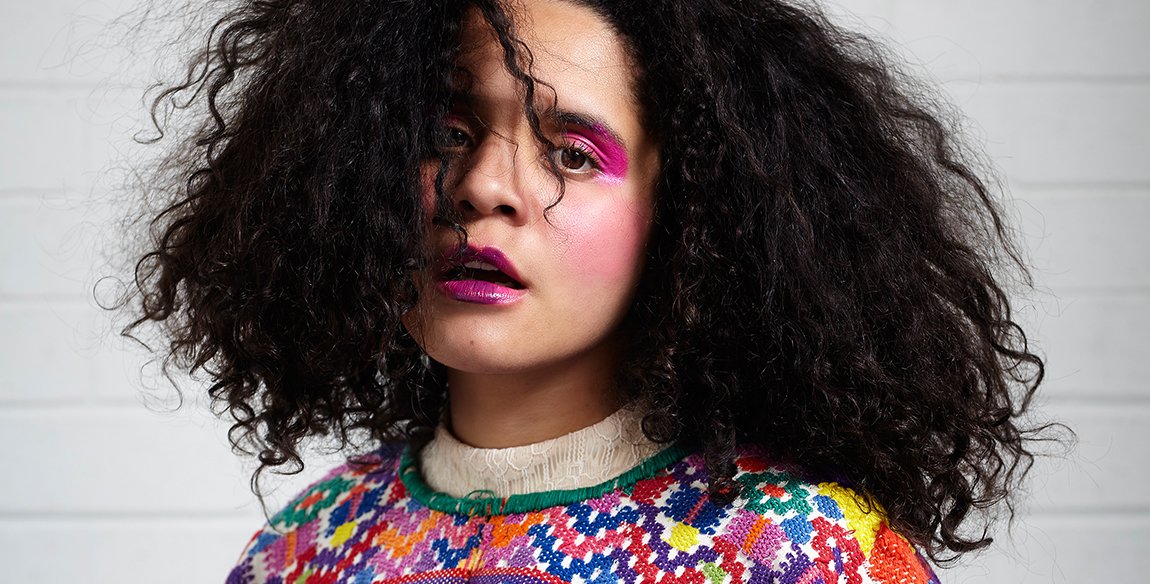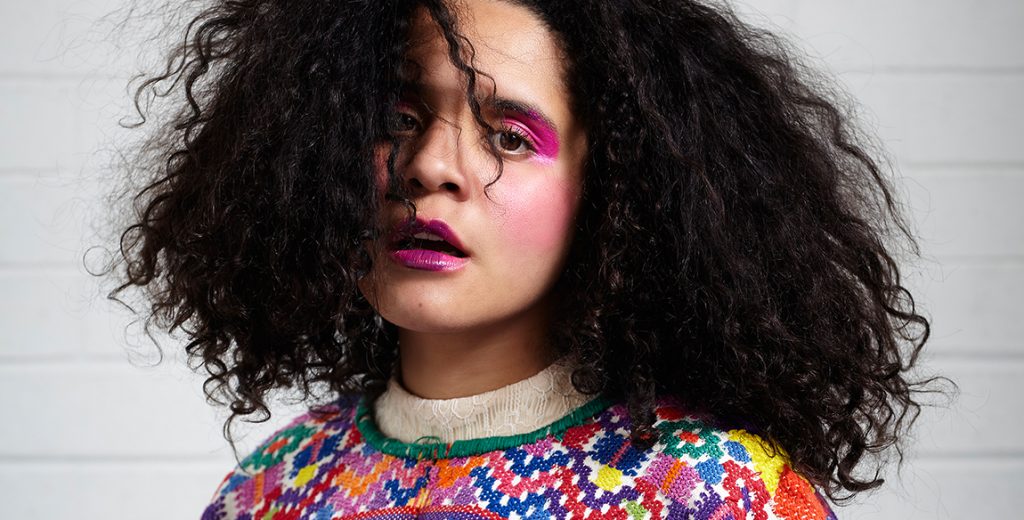Toronto-based Colombian singer Lido Pimienta has forged a career from putting out boundary-breaking, thought-provoking music. One month after she beat out Leonard Cohen and Feist to receive the Polaris Music Prize, Canada’s most prestigious musical honor, one would think that anyone attending her show would be there, at least in part, for her message.
But at her October 19 performance at Halifax Pop Explosion music festival, that turned out to be false. For some time, Lido has had one rule at her shows: women of color to the front, and white folks in the back. However, according to The National Post, a volunteer photographer associated with the fest was unwilling to comply with Lido’s now-standard request, reportedly turning aggressive until she was escorted from the event.
After the story made headlines, it was reblogged by conservative web sites and a standard 2017 conservative brouhaha was stirred. Since the incident, Lido has been facing online harassment. On Twitter, Lido cautioned her fans to take care of themselves while “confronting the hateful and misguided messages.”
On Thursday, the festival issued an apology to Lido on Facebook and announced their commitment to institute “anti-oppression and anti-racism training among their staff.” They commended Pimienta’s work in their apology. “We have so much respect for the art and music you create and the space you make for women, people of colour, transgender, and non-binary people. The way you interact with the world acts and provides a thoughtful example.”
Remezcla contacted Lido about the Halifax incident. In a statement shared with Remezcla and posted on Facebook, she told us that the photographer was asked to leave the concert after shoving and screaming her way in front of the stage, eventually blocking the view of a group of people and swinging her arms. “I saw her crying, ‘Why do you hate me because I’m white?’” says Lido. “It had nothing to do with her skin colour, but because she brought violence to my show, in an area surrounded by people that have to deal with this kind of violence in their everyday lives.”
The singer continued, “When I ask white women to let women of colour through, I am not saying I hate white women. I am trying to show that white women have an easier time navigating the world than [women of colour], because their skin colour allows them to enjoy more advantages and a relatively higher level of safety. When we make space for women of colour, we are saying ‘we see you, we love you, we appreciate you’ and allowing them to have a safe space from which to enjoy the show.”
The festival was not the first time that Lido has made the request that the crowd arrange themselves according to anti-racist and anti-sexist tactics. One Reddit user reported that at her show at Halifax venue The Seahorse, Lido requested that men find their way to the back of the crowd. That post produced a similar backlash, mostly from users who were unacquainted with Lido’s work and had never seen one of her live shows.

“When I ask men to go to the back, I am not kicking them out, I am not telling them I hate them, I am simply inviting them to be part of a generous gesture to ensure that women are safe,” Lido says in the statement.
Requests like this are nothing new. As any riot grrl can tell you, Lido’s tactic is an intersectional interpretation of Kathleen Hanna’s “girls to the front” call at Bikini Kill shows, which the frontwoman started using as far back as the early 90s. “All boys be cool, for once in your lives,” Hanna would say. “Go back, back, back.”
Princess Nokia is among the artists who now employ Hanna’s technique, which seeks to center the experience of groups that often find themselves, quite literally, pushed to the edges. “I know what it is to feel extremely neglected in a space,” the New York rapper explained in one interview. “I know what it is to feel angered by neglect in a space. And I know what it is to feel unsafe in a space,” she explains. “As young women of color, it’s important that our voices, our opinions, our values, our narratives be understood, be included, be heard, be respected, be honored.” While reorganizing the crowds in a concert may feel like oppression to some, to others, it is an astute spin on music fan reality, in which society’s inequalities can be reproduced in a rowdy concert hall.
Lido has been an active voice in the music industry for empowerment sine her debut Color dropped in 2010, when she was 23 years old. She is a descendant of the Wayuu people, a northern Colombia indigenous group that has struggled to survive after an international coal mining restricted their water rights in 2011. Many of her musical projects pay homage to the experience of marginalized people of color; Lido’s rendition of Rihanna’s “Work” is a tribute to the hardworking vendors of Barranquilla. The sweet-voiced singer has dedicated her work to dissolving the music industry boundaries that serve to other Latinx artists.
She is determined to carry on after the devastating fall out from the Halifax incident. “I love my audience,” Lido explains in the statement. “I am inspired by everyone, but I am not blind to the unsettling effects of colonialism and white supremacy. I will not stop doing everything in my power to make oppressed people feel safe and show them the respect that they deserve at my shows. I don’t have all the answers, but I have a lot of love, and the courage to challenge a system that was built to put people like me down. That’s where I’m coming from.”




